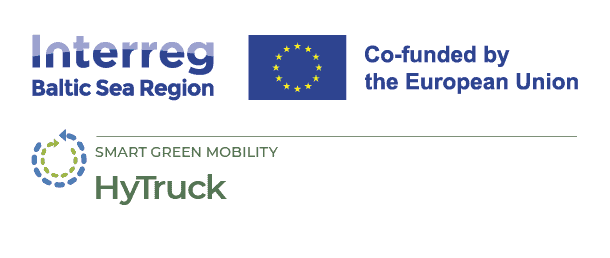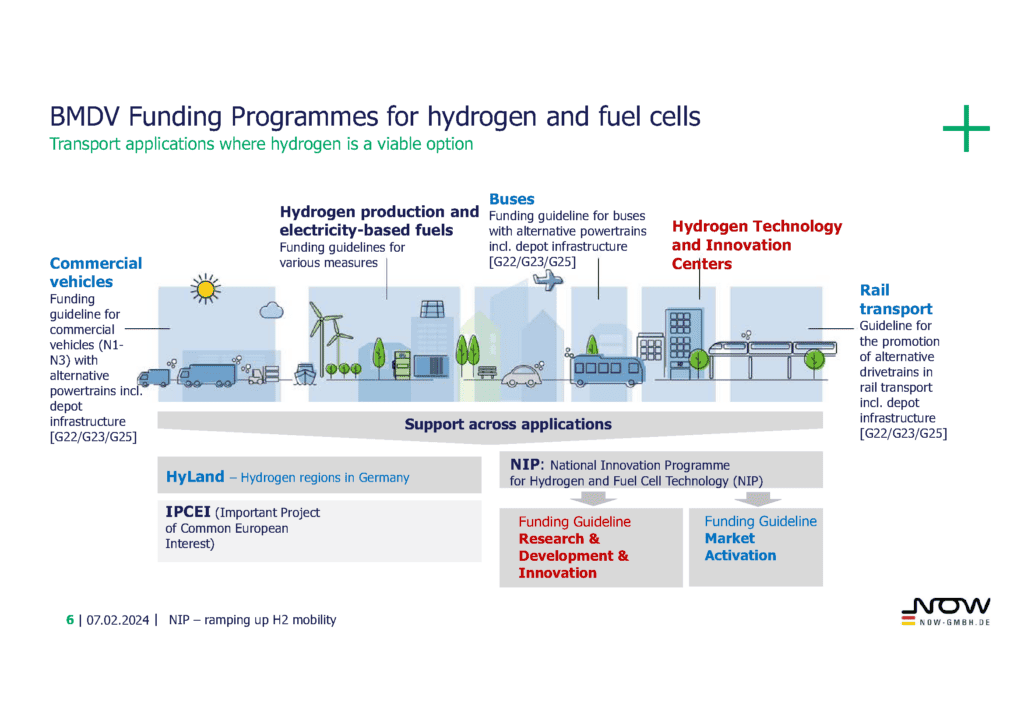
HRS development in Germany
13 February 2024
Ramping up H2 mobility – the German National Innovation Program (NIP)
Carsten Beyer (NOW GmbH – Program Manager Hydrogen Refuelling Infrastructure)
As a federally owned company, the National Organisation Hydrogen and Fuel Cell Technology (NOW) takes assignments from federal ministries in the area of sustainable mobility and energy supply. NOW coordinates funding programs, elaborates strategies and fulfils advisory tasks.
The main funding tool is the National Innovation Program for Hydrogen and Fuel Cell Technology (NIP), which supported in its second phase so far (20016-2023) inter alia the investments for more than 3000 cars, 100 busses, 43 trains and more than 60 hydrogen refuelling stations (HRS).
To fulfil the criteria required by AFIR, Germany has to put in service a minimum of approx. 105 HRS. However, according to industry surveys and sales forecast by NOW approximately 250 to 550 HRS will be needed to fulfil the H2 demand by 2030. To support this ramp-up, inter alia more funding calls are planned as a part of NIP.
Renewable Hydrogen for the Havelland – Regional green hydrogen for the communal transport sector
Reinier Waters (GASAG – Lead Hydrogen Activities at GASAG)
In Ketzin a consortium of EMB, GASAG, Havelbus and HAW plan to decarbonize local, communal transport fleets in the Havelland Area. The project consists of a 3MW electrolyser that will produce renewable hydrogen, a hydrogen refuelling station and the usage of the produced hydrogen in the local bus and waste collection fleets. A study by the Rainer Lemoin Institute has selected the project as the most mature and relevant hydrogen project in the Havelland, an area just west of Berlin.
Against the backdrop of announced changes to German funding programs for hydrogen applications in the transport sector, the presentation underlines the importance of a stable funding regime. When investment support for the electrolyser and communal hydrogen vehicles is scrapped on short notice, government will need to support these projects in other was to avoid realisation is discontinued
The Interreg Project H2CE – Empowering H2-ready regions in Central Europe
Pedro Brosei (Joint Spatial Planning Department Berlin-Brandenburg – H2CE Lead Partner)
H2CE addresses the challenge of integrating hydrogen solutions and renewable energies into the regional energy transition. Today, existing information and support focuses on the needs and perspectives of project owners and of the industry, treating public authorities as (passive) framework conditions instead of understanding their expertise and authority as a further means to pro-actively support change. H2CE aims at empowering public authorities and administration in Central Europe (CE) to integrate hydrogen proactively and sustainably into regional planning and development. This will lead to an acceleration of hydrogen infrastructure ramp-up and a more efficient use of available funds. The main results of the project will be mechanisms to empower regional decision makers to support a hydrogen-based energy transition, the initiation of a cross-regional & transnational network of H2-ready regions, and the implementation of a digital collaboration platform.






